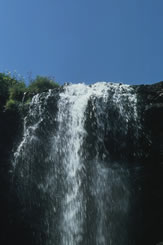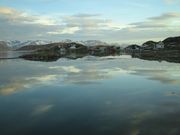 Actors
Actors
The MAP is a regional cooperative effort involving the 22 Contracting Parties to the Barcelona Convention: 21 countries bordering the Mediterranean Sea (Albania, Algeria, Bosnia and Herzegovina, Croatia, Cyprus, Egypt, France, Greece, Israel, Italy, Lebanon, Libya, Malta, Monaco, Morocco, Serbia and Montenegro, Slovenia, Spain, Syria, Tunisia, Turkey), as well as the European Union.
The 22 MAP members decide on the MAP strategies, budget and programme.
They meet every two years at Ministerial level to review and deliberate on
general policy and on strategic and political issues relevant to their
cooperation. They also determine the MAP's work programme and budget for the
following biennium.
MAP Focal Points are senior officials appointed by MAP member
countries to be responsible for the follow-up and coordination of MAP
activities, both at regional and national level. These official
representatives of the Contracting Parties delegate other Focal Points
(sectoral) to focus on key MAP issues. MAP Focal Points meet every two years
to review the progress of the Mediterranean Action Plan, as well as to agree
on the recommendations, programme and budget for the following biennium,
which are submitted to the meeting of the Contracting Parties for final
approval.
A rotating Bureau of six representatives of the Contracting Parties
elected at each Contracting Parties meeting, guides and advises the MAP
Secretariat in the interim period between meetings. The Bureau meets twice a
year. Current members are: Egypt, European Community, Slovenia, Spain,
Tunisia and Turkey.
The Athens-based MAP Coordinating Unit (MEDU) is the Secretariat of
the Mediterranean Action Plan. It is responsible for the follow-up and
implementation of the MAP legal documents and activities. It performs
diplomatic, political and communications roles, supervising the main MAP
components, such as the Regional Activity Centres. It also undertakes all
Secretariat duties, including the organisation of major meetings and
programmes and the financial management.
The Mediterranean Commission on Sustainable Development
(MCSD), set up as an advisory body to MAP in 1996, with a unique
structure, is a think-tank on policies for promoting sustainable development
in the Mediterranean Basin. The MCSD prepared of the Mediterranean
Strategy on Sustainable Development (MSSD) that was adopted at the 14th
meeting of the Contracting Parties in November 2005.
The Programme for the Assessment
and Control of Pollution in the Mediterranean Region (MED POL)
represents a key tool for the reduction of land-based pollution. Set up in
1975 to respond to the specific needs to better assess, qualify and quantify
the marine environment, MED POL has gradually shifted its focus over the
last decade towards the effective reduction of marine pollution from
land-based sources and the integration of its activities as a key tool to
sustainable development in the region.
There are six MAP Regional Activity Centres (RACs) based in six
Mediterranean cities, each offering expertise in specific fields of
action:
Blue Plan Regional Activity Centre (BP/RAC): It adopts a systemic and prospective approach to Mediterranean environment and development issues using observation and evaluation tools and generating indicators.
Priority Actions Programme Regional Activity Centre (PAP/RAC): It concerns itself with integrated coastal area management to alleviate development problems in built up coastal areas.
Specially Protected Areas Regional Activity Centre (SPA/RAC): It focuses on biodiversity and is involved in the protection of Mediterranean species, their habitats and ecosystems.
Regional Marine Pollution Emergency Response Centre for the Mediterranean Sea (REMPEC): It helps Mediterranean coastal states build up their national prevention and response capabilities to be prepared for major marine pollution incidents.
Environment Remote Sensing Regional Activity Centre (ERS/RAC): It supports planning and decision-making processes related to marine and coastal areas pollution problems and remedies, through the utilisation of satellite technology, as well as capacity building related activities.
Cleaner Production Regional Activity Centre (CP/RAC): It promotes the reduction of industrial waste at source of the Mediterranean industrial sector and disseminates tried-and-tested cleaner production techniques.
Partners
Close links have been forged with other UN agencies, the World Bank,
the Mediterranean Environmental Technical Assistance Programme (METAP), the
Centre for Environment and Development for the Arab Regionand Europe
(CEDARE) and the Global Environment Facility (GEF) .
 you are not logged in
you are not logged in







